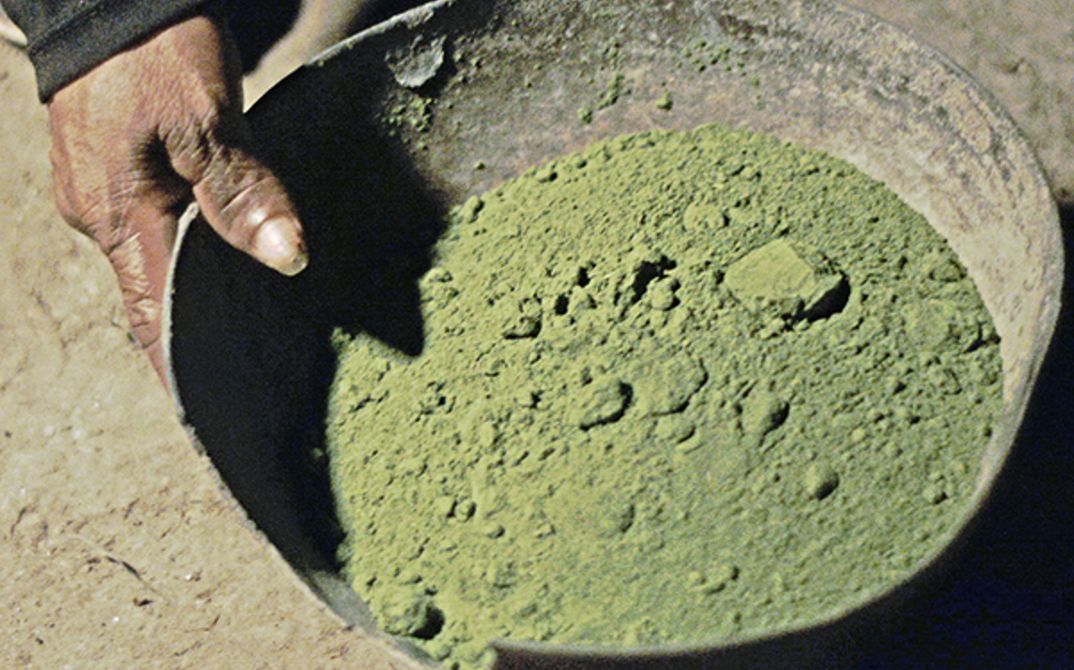24 min. Spanish, Ocaina.
In the Muina-Muruí Amazonian community the coca leaf is the highest sanctity. It is considered a person, not an object or product, a non-material sacred and feminine being, giving access to enlightenment. The Muina-Muruí consume the plant in the form of a green powder called “Jíibie” in Uitoto or “mambe” in Spanish to do agriculture or to fish. But its main purpose is for “the ritual of the sweet discourse”: Men gather for hours to discuss political issues. The coca “sweetens” the discourse and allows for the articulatation of complex ideas. The psychotropic substance thus becomes the basis of living together.
Jíibie focuses on the elaboration of the powder, a ritual which constitutes a rhythmic and polyphonic collective activity involving several young men: the plant is burnt, mixed with other plants, reduced to ashes and powder. The gestures of the men recall the spiritual nature of the coca entity and appear in the film as the reminiscences of a resistance that has been going on for centuries. Since the Europeans arrived the uses of coca have been repressed or appropriated. By showing the elaboration, the film intends to show an alternate and singular use of the plant that redefines our relationship with nature.
Laura Huertas Millán, born in 1983 in Bogotá, Columbia, is a French-Colombian filmmaker. In 2017, she completed a PhD between Université PSL and the Sensory Ethnography Lab (Harvard University). Her hybrid films have been awarded and screened at international film festivals and cinemas.
